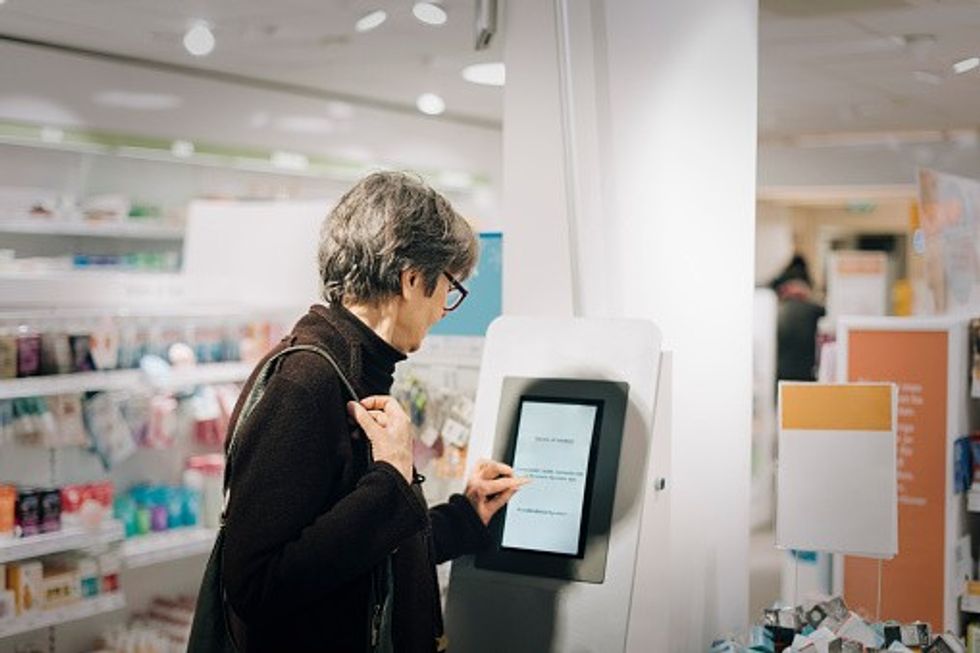Andrew Magrath looks at how pharmacy contractors can encourage their teams and the patient populations to look after their mental health in these hard times…
Whether it’s the effects of the coronavirus pandemic and those suffering with long Covid, or the financial pressures of rising living costs, these hard times can affect absolutely anyone’s mental health.
Mental health problems have worsened across all age-groups in the last few years, from lack of social interaction, unexpected bereavements or the significant impact of a physical injury or long-term illness taking its toll on mental wellbeing – these challenging experiences and situations that we face throughout life leave a big strain on the population.
Ultimately, there is an urgent need to reduce rising levels of mental ill-health in our society. As a pharmacist with 25 years’ experience in healthcare, I feel I have an obligation to my patients to support them with their healthcare needs, and mental health should be treated just the same as physical health.
Despite efforts to improve NHS mental health services, patients may still not be receiving the appropriate immediate care as they are often provided with online counselling or an App for long-term support (online support introduced since the pandemic).
Community pharmacists are in a unique position to be advocates for patients with mental illness as they are the healthcare professionals’ patients see most often. This is a good opportunity for pharmacists to speak to patients face-to-face and give them advice in a more practical way rather than potentially waiting weeks for an GP appointment.
As well as being a pharmacist, I am a qualified independent prescriber and have invested the last few years training to become what is commonly known as a Health Behavioural Consultant to better serve the community and their mental health.
I have also invested in a brand-new consultation room at my pharmacy so that I can offer what is known as Acceptance and Commitment Therapy (ACT) as a new pharmacy service. I was inspired to expand my skillset and knowledge from my own personal experiences with mental health and felt that I could offer more to those who need it most.
My new service will allow clients to book 30-minute sessions with me where we will look to identify and work towards our values and develop psychological flexibility. An example of this within ACT is a tool called the ‘bullseye’ – a patient will fill out a form to begin with where we identify which four values they are furthest away from the centre (such as relationships, health, leisure, or personal growth).
We then identify one part of the value that we can work on together over the course of a week. Often with depression and anxiety, we become overwhelmed with over thinking about everything at once, this exercise is to break those thoughts down and concentrate on one thing at a time. The positive thing about this new service is that the sessions are face-to-face, personal and use practical tips to improving mental health.
Face-to-face
I firmly believe that healthcare should be delivered face-to-face. Telephone and online services are of course great for those who need 24/7 support when they have busy lives, but I believe that approaching a mental health challenge in-person with a familiar face is a great step towards taking charge or your mental wellbeing and finding out what you can do to stay healthy.
The pandemic has left a lot of people living on their own, working from home, and generally becoming a lot more isolated – having the opportunity to speak to someone face-to-face in a private room to open up about their feelings is a great starting point. Talking about your mental health issues is not a sign of weakness, and I hope one day any patient can walk into a pharmacy and approach one of the team just as they would on their physical health.
Long-term illness
Some people may think that depression must be clinical and come from a severe condition such as psychosis or PTSD, however it is very common to see situational or generic depression root from patients with long term illness such as heart disease, diabetes, or even significant injuries where over time, patients can find themselves falling into a depression due to a drastic change of living circumstances.
Recognising the differences between these types of depression is the first step towards getting help. If this is something a patient is experiencing, I encourage them to take charge of their illness or injury by reaching out to their pharmacy for medical advice and support.
Seeking support
If you are starting to see warning signs of depression or anxiety, seek support before you potentially reach a breaking point. Make sure that you’re aware of your local guidelines and support and reach out to your local pharmacy so that they can sign post you to your local mental health service.
Pharmacy teams who are approached by someone experiencing ill-mental health should always ask if they’ve had a proper consultation with their GP prior to being prescribed a SSRI antidepressant.
It’s also important to eat well, keep active, and do the simple things in life that make you happy - cooking, walking, journaling, self-care. My ACT sessions provide patients with weekly self-help tips that they can try out and then come back to me a week later to see if they are making a small difference.
Own mental health
I have a great team on-board at Magrath Pharmacy, and I am incredibly proud to not have lost any team members during the hard pressures of the pandemic. There was such uncertainty about what was going to come next for pharmacists, and how the weeks and months would unfold.
The experience of the pandemic gave me the strength to be positive, optimistic and lead by example by being physically present in the pharmacy – not just for my teams but the patients we serve.
Andrew Magrath is superintendent at Magrath Pharmacy, an Alphega Pharmacy.

















 A woman using kiosk at pharmacy store gettyimages
A woman using kiosk at pharmacy store gettyimages  Pharmacist examining commissioning machine in pharmacy gettyimages
Pharmacist examining commissioning machine in pharmacy gettyimages